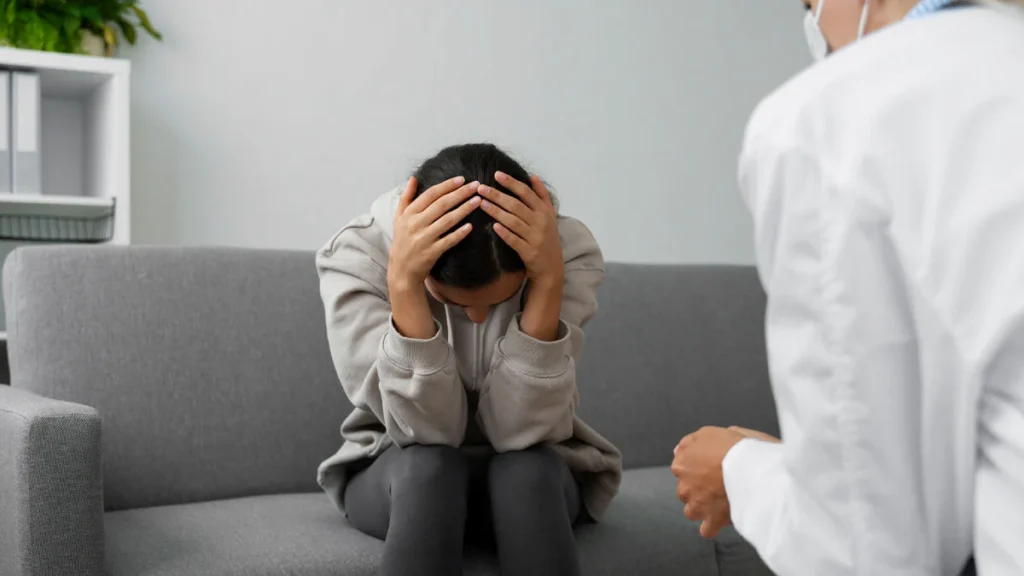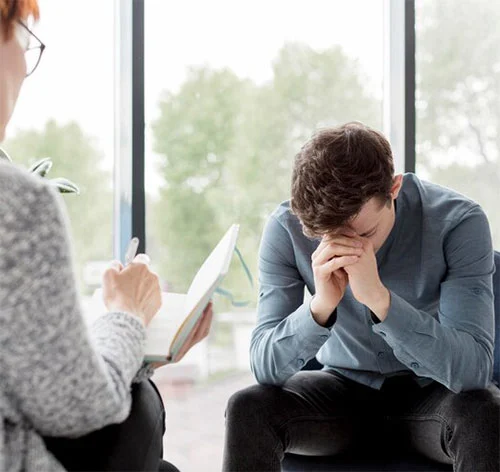
Post-Traumatic Stress Disorder Symptoms, Causes and Treatment
You’ve probably heard the term “PTSD” thrown around in movies, on TV, or maybe even experienced it second hand through the stories of family or friends who’ve dealt with trauma. But do you really understand what this mental health condition is? Like, beyond just knowing it has something to do with feeling residual stress or anxiety after a disturbing event?
Well, stress not, we are here to give you complete details about Post Traumatic Stress Disorder. Because knowing the realities of PTSD is the first step in raising awareness and removing the stigma around this often misunderstood mental illness.
Table of Contents
ToggleWhat is PTSD or Post Traumatic Stress Disorder?
Post-traumatic stress disorder (PTSD) is a mental health condition triggered by either experiencing or witnessing a terrifying, dangerous, or life-threatening event. These deeply distressing experiences overwhelm the brain’s ability to properly process and cope with the traumatic event, leaving long-lasting emotional and psychological scars.
Maybe you were a first responder who witnessed a horrific accident scene. Or you were violently assaulted and lived in fear of your safety. Some develop PTSD after surviving a natural disaster, terrorist attack, combat situation, or near-death experience. Essentially, any experience that exposes you to deep trauma, loss, or existential threat can potentially trigger PTSD down the line.
Now, it’s normal and expected to feel unsettled, anxious, or even temporarily haunted by horribly traumatic events like these. But having PTSD involves experiencing intense, persistent reactions and intrusive thoughts for more than a month after the distressing ordeal occurred. Rather than your brain processing and overcoming the trauma, it essentially gets stuck in a continuous loop of reliving the experience through visceral flashbacks, nightmares, and painful physical/emotional responses.
Symptoms of Post Traumatic Stress Disorder
Speaking of intense reactions, let me break down some of the most common and disruptive PTSD symptoms:
- Flashbacks: With little to no warning, you vividly re-experience the distressing event as if it’s happening all over again, often triggered by sights, sounds, or circumstances resembling the trauma.
- Recurring Nightmares: Frequent, terrifying dreams centered around the traumatic event that leaves you chronically restless, stressed, and exhausted even with a full night’s sleep.
- Intense Emotional Distress: Random internal or external reminders of the trauma can suddenly induce intense fear, horror, anger, guilt or shame months/years later.
- Physical Reactions: Pounding heart, rapid breathing, nausea, muscle tension – it can feel like your body is continuously bracing for the threat relived in those flashbacks.
If you are facing any of these symptoms you should schedule an appointment at Hale Clinics, which is one of the Best Psychologist in Mohali.

Causes of Post Traumatic Stress Disorder (PTSD)
Now that you understand just how intense and persistent the symptoms can be, you’re probably wondering – what would make someone more susceptible to developing post traumatic stress disorder while others exposed to similar traumas seem to bounce back faster?
Unfortunately, there’s no easy single-factor equation for predicting PTSD, as mental resilience is a complex cocktail involving both neurobiological and psychosocial variables. However, research suggests a few common threads:
- The Duration/Intensity of Trauma: The more prolonged, extreme, frequent or disturbing the events, the greater the brain’s dysregulated stress response.
- Personal History: Previous traumas, mental health issues, or lack of support systems exacerbate your PTSD vulnerability.
- Brain Chemistry: Neurotransmitter imbalances and abnormalities in stress hormone regulation create physiological PTSD risk factors.
- Childhood Adversity: Distressing experiences in early development can physically alter brain structure and function.
Genetics and personality factors also seem to influence resilience. For example, inherently anxious individuals with lower distress tolerance may be more prone to longer-lasting PTSD symptoms.
How to Recover from PTSD?
Fortunately, no matter how severe or long you’ve battled PTSD, there are evidence-based psychotherapy and medication options to help regain control over those harrowing traumatic memories and emotions.
Cognitive behavioral therapy, for example, cognitive processing therapy (CPT) utilizes cognitive restructuring techniques to modify unhealthy beliefs about the trauma and replace them with more balanced perspectives. Other modalities like eye movement desensitization and reproducing help in processing traumatic memories.
Several medications can also restore neurochemical balances disrupted by Post Traumatic Stress Disorder when combined with counseling. With compassionate, comprehensive treatment, reclaiming your mental freedom from that lingering traumatic storm is absolutely possible.
Conclusion
The worst thing you can do is suffer in silence, trying to grit your teeth and repress PTSD’s soul-draining symptoms. Trauma, no matter how long ago, has a tricky way of embedding itself into our psyches like a ticking time bomb. Seeking support disarms that bomb, allowing you to finally let go of the past and embrace the life you deserve – one of peace, healing, and personal growth far beyond your distressing experiences.
So whether you’re dealing with PTSD yourself or supporting a loved one, schedule an appointment at Hale Clinics, which has one of the Best Psychiatrist in Mohali.
Just keep this in mind: You don’t have to be controlled any longer by trauma’s haunting echoes. With courage, support, and evidence-based treatment, you will soon recover.
FAQs
Q1. What is PTSD or Post-Traumatic Stress Disorder?
Ans. PTSD is a mental health condition triggered by experiencing or witnessing a terrifying, dangerous, or life-threatening event.
Q2. What are the common symptoms of PTSD?
Ans. Common symptoms include flashbacks, recurring nightmares, intense emotional distress, and physical reactions like pounding heart, rapid breathing, nausea when reminded of the trauma.
Q3. What causes PTSD in some people and not others?
Ans. Factors that increase PTSD risk include the duration/intensity of the trauma, personal history of trauma or mental health issues, brain chemistry imbalances, childhood adversity, genetics, and personality factors like anxiety levels.
Q4. How is PTSD treated?
Ans. Treatment options include psychotherapy like cognitive behavioral therapy, cognitive processing therapy, eye movement desensitization and reprocessing therapy.
Q5. Why is it important to seek treatment for PTSD?
Ans. Untreated PTSD can lead to suffering in silence and the trauma becoming embedded in the psyche. Treatment allows regaining control over traumatic memories/emotions and reclaiming mental freedom.
